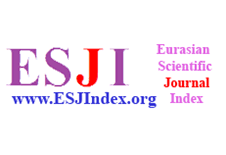Linguistic-psychological factors of teaching Russian-speaking students to Uzbek monologue speech
Salisheva Zilola Ismailovna
Associate Professor of the Department of Uzbek Language and Literature, Doctor of Philosophy (PhD) in Pedagogical Sciences, Uzbekistan State University of World Languages
Keywords: speech activity, monologue, dialogue, monologic speech, linguo-psychological, language, teaching, methodology, text.
Abstract
The article delves into speech activity, exploring its emergence, formation, and specifically focuses on the role of monologic speech within this framework. It also emphasizes the extent of research dedicated to monologic speech within the methodology of teaching the Uzbek language, shedding light on both linguistic and psychological factors influencing monologic speech.
References
Выготский Л. С. Мышление и речь // Избранные психологические исследования. – М.: Педагогика, 1956. – С.60.
Лапидус Б.А. Проблемы содержания обучения языку в языковом вузе. –М.: Высшая школа, 1986. – С. 143.
Волкова Л.В. Обучение грамматически правильной речи литературно-разговорного стиля на II этапе языкового вуза (франц. язык). Дисс. ... канд. пед. наук. – М.: 1975. – С. 116.
Зимняя И.А. Психология слушания и говорения. Дис. .. докт. наук. –М., 1973. – С. 26.
Mukhitdinova, K., Asilova, G., Salisheva, Z., & Rakhmatullaeva, M. (2019). Current Issues of Creating Educational Material for Intensive Teaching to the Uzbek Language of Foreigners. International Journal of Engineering and Advanced Technology, 9(1), 5224-5226.
Салишева, З. И. (2011). Значение упражнений по переводу в процессе обучения узбекскому языку как второму. Вестник Московского государственного лингвистического университета, (630), 154-159.

















